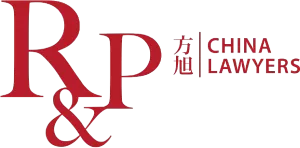In a webinar for the Danish-Chinese Business Forum, Maarten Roos (Director of R&P China Lawyers, a China-registered law firm) shared examples and case studies on compliance issues that foreign businesses face when doing business in China, and introduced approaches on how to deal with these challenges.
Maarten touched on a number of non-compliance issues and discussed the level of compliance for businesses in different industries, of different sizes and across locations in China. This article will touch upon a few of these.
Mooncakes and Overtime
One big question among business people who have been in China for a while is whether it is even possible to be 100% compliant in China. Maarten expanded on the theme and also illustrated the dilemma with two practical examples: mooncakes and overtime.
Employers who provide mooncake vouchers to their staff around the Mid-Autumn festival do not usually declare them as a benefit that is taxable, although legally this is required. Tax authorities in China do not jump into action against such behavior.
Overtime is another matter where Chinese law is quite clear: every employee that works beyond a standard number of hours must be paid overtime pay regardless of his/her position in the company. In practice, senior executives may work more hours than stipulated in their labor contracts, and although they legally qualify for such overtime payment this is rarely paid.
Common Compliance Issues
One of the mostly widely known compliance issues for a business is an employee receiving bribes from a supplier. Evidence of such behavior is often hard to come by, so a company might be hard pressed to dismiss an employee for cause. In one of the cases Maarten discussed, the company eventually found out that the car of the accused employee was owned by a supplier. The lesson is that it may pay to investigate anything that seems even slightly unusual.
A compliance issue that used to be more common but can still become a serious matter: Underpaying social insurance contributions. In a recent due diligence, Maarten found that a target company only start paying social insurance for new employees after they had passed the probation period; moreover the company did not use the full salary as basis to calculate of payments. Maarten has been involved in a number of situations where companies had to pay millions of RMB in "clean-up" costs after one employee filed a complaint to the relevant authorities.
Foreign executives in China are not always aware that the Chinese advertising law is unusually strict. For example, using the wording "one of the leading" can lead to an external investigation and penalties, often triggered by an experienced consumer.
Companies and their executives can get into serious trouble for using the wrong HS (harmonized system) codes when they import products into China, even more so because violations can carry a prison sentence. Customs violations are one of the main reasons for jail-time of foreigners in China.
Members who join the board of an existing company may ask themselves what kind of liability they may face in their positions for compliance issues in their companies. Generally, board members are not considered to be sufficiently involved in daily business operations to be held responsible. However, in order to clear up responsibilities for Chairpersons or Executive Directors based abroad, it is advisable to clearly define responsibilities and formally (and in writing) appoint persons in charge of specific operations in the company.
The content of this article is intended to provide a general guide to the subject matter. Specialist advice should be sought about your specific circumstances.


